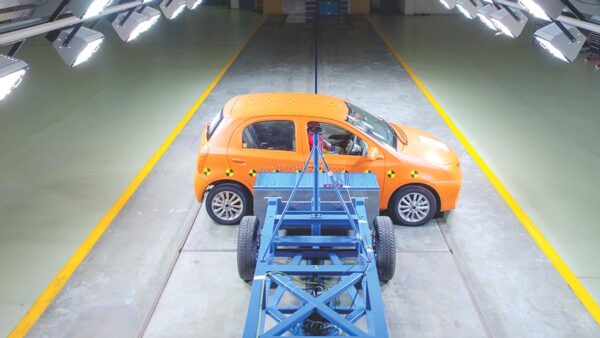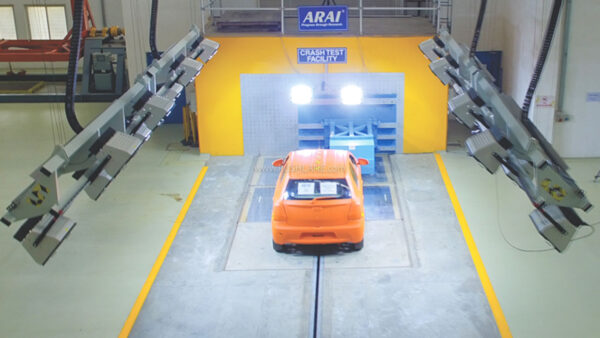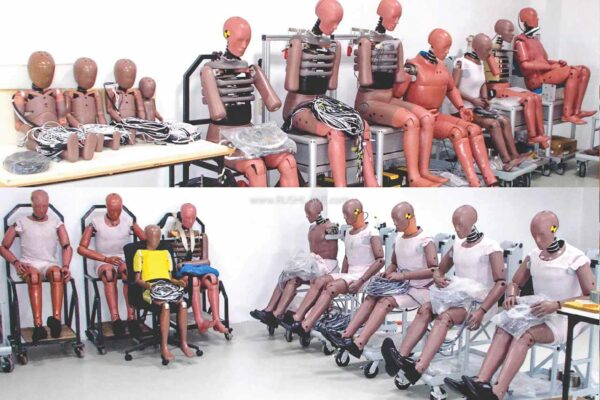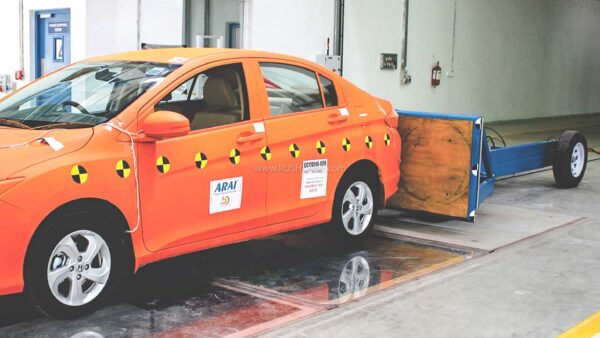
India Launches Bharat NCAP: A Milestone in Vehicle Safety Standards
India’s automobile market has evolved, shifting from being solely cost-driven to becoming quality-centric. Today, consumers are more discerning, considering factors such as design, technology, and, crucially, safety. This shift has prompted car manufacturers to improve their offerings, which will ultimately lead to a safer and more competitive market.
Star Ratings for Informed Choices
In a landmark move toward enhancing road safety and vehicle quality, India has launched its own car crash testing program, Bharat New Car Assessment Programme (Bharat NCAP). Launched by Union Minister Nitin Gadkari, this initiative aims to bolster the safety standards of motor vehicles weighing up to 3.5 tonnes. Bharat NCAP is a significant step toward ensuring that Indian roads become safer for all, and it comes with several benefits for both consumers and the automobile industry.

Under Bharat NCAP, car manufacturers can voluntarily submit their vehicles for testing according to the Automotive Industry Standard (AIS) 197. These vehicles will then be evaluated based on their performance in crash tests and awarded star ratings on a scale of 0 to 5, for both adult occupants (AOP) and child occupants (COP). These star ratings will empower consumers with valuable information to make informed decisions about the safety of the vehicles they intend to purchase.
Affordable Crash Safety Testing
One of the standout features of Bharat NCAP is its cost-effectiveness. Minister Gadkari highlighted that testing vehicles abroad can cost up to Rs 2.5 crore, while under Bharat NCAP, the cost is reduced significantly to just Rs 60 lakh. This affordability factor is a game-changer, allowing more car manufacturers to participate in safety testing. As a result, this program has the potential to revolutionize the Indian automobile industry by putting safety at the forefront of car production.
Driving Towards Safety: BHARAT NCAP Revolutionizes Vehicle Standards in India.#BharatNCAP pic.twitter.com/Y2zA9E3Hni
— Nitin Gadkari (@nitin_gadkari) August 22, 2023
Minister Gadkari emphasized the government’s goal to grow the Indian automobile industry from its current size of Rs 12.50 lakh crore to Rs 15 lakh crore. India has already made substantial strides in the global automotive landscape, surpassing Japan to become the world’s third-largest automobile market, trailing only China and the United States. The automobile industry is also a significant contributor to employment and government revenue, employing over 4 crore people and contributing 6.5 percent to the country’s GDP.

Saving Lives and Reducing Losses
One of the primary motivations behind Bharat NCAP is the dire need to reduce road accidents and fatalities in India. The statistics are staggering – the country witnesses 5 lakh accidents and 1.5 lakh deaths every year. On a daily basis, this translates to 1,100 accidents and 400 deaths, with a significant proportion occurring among individuals aged 18 to 34 years. The economic impact of this loss of life is profound, with a 3.14 percent hit to GDP. Bharat NCAP, by setting higher safety standards, has the potential to mitigate this crisis significantly.
Industry Applause and Support
The Indian automobile industry has welcomed Bharat NCAP with open arms. Leaders like Maruti Suzuki India, Hyundai Motor India, Mahindra & Mahindra, and Renault have pledged their support to this program. They view it as a positive step toward enhancing vehicle safety standards and providing consumers with an authentic and objective rating system that guides their purchase decisions.

Mr. Myung-Sik Sohn, Chief Sales and Business Officer, Kia India, said “BNCAP is an enhanced road safety movement that extends much beyond just safety ratings for cars. We wholeheartedly commend and will comply with the Government of India for its visionary approach to safety, encompassing both active and passive safety components. Aligned with the Atmanirbhar Vision of the Government of India, this move eliminates the need and associated costs of testing vehicles outside. It will also elevate the global reputation of products from India to the world with good ratings in a big way.”
Mr. Unsoo Kim, MD & CEO, Hyundai Motor India Limited, said “We welcome the BNCAP safety initiative by Govt. of India and believe this effort will raise safety standards, empower consumers with vital information, and make Indian roads safer for all. At Hyundai Motor India, we remain committed to delivering the highest safety standards across our entire product range”.

